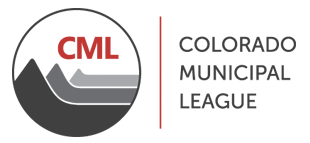Legal Corner: Changes in Colorado unclaimed property laws
In This Section
CML Newsletter
Aug. 5, 2025
By Molly McClure, CML law clerk
Unclaimed property in Colorado is governed by the Revised Uniform Unclaimed Property Act (RUUPA), which is a uniform law that many states have adopted to address the disposition of intangible property and very limited tangible property such as safe deposit boxes. Colorado adopted the RUUPA in 2019, codified at C.R.S. §§ 38-13-101 to 38-13-1504, and included several Colorado-specific revisions. One such revision was an exemption for local governments that have their own local ordinance or resolution governing unclaimed property disposition. This permitted municipalities to administer their own local program in lieu of the state program. However, two acts from the most recent legislative session, HB25-1224 and SB25-068, have altered how municipalities may handle unclaimed property within their jurisdiction.
House Bill 25-1224
HB25-1224, which went into effect June 4, 2025, amended the RUUPA by clarifying and modifying several sections. Most notably, the act repealed the local government exemption (C.R.S. § 38-13-1504), which allowed local governments that met certain requirements to opt out of the RUUPA in favor of their own programs. The loss of this exemption means that municipalities must comply with Colorado's unclaimed property laws in full.
The RUUPA sets a general three-year dormancy period from the date of the last customer-initiated contact, but the dormancy period for payroll, wages, and salary checks is only one year. To comply with Colorado’s RUUPA, municipalities must use due diligence to provide written notice to the last-known address of an owner for any property that is valued at $25 or more that is presumed to be abandoned.
Municipalities are expected to report and remit all unclaimed property to the Office of the Colorado State Treasurer by Nov. 1 of each year, regardless of value. Even if municipalities have no unclaimed property to report, they must file a report with the state treasurer, which is referred to as a negative report. Failure to comply with the RUUPA may subject the municipality to interest, penalties, and fees.
Senate Bill 25-068
SB 25-068 was passed independently of HB25-1224 but provides an important exception to the RUUPA, especially in light of the removal of the local government exemption. SB25-068, which goes into effect Aug. 6, 2025, clarifies that a municipally owned electric or gas utility may elect to participate in the state unclaimed utility deposits program or develop a similar local mechanism for utilizing unclaimed deposits for utility bill payment assistance. This has been a common municipal practice for years, but SB25-068 codified that practice in C.R.S. §§ 40-8.5-102 to 106.
This explicit codification is particularly important with the passage of HB25-1224, because it provides the sole exception to local government compliance with the RUUPA. In other words, unclaimed utility deposits are not subject to the requirements of the RUUPA so long as those unclaimed deposits are utilized for the state program or a local program that helps finance electric and gas utility bill payment assistance for income-qualified households.
Moving Forward
In putting forward HB25-1224, the state asserted that it was seeking to remove the local government exemption to the RUUPA because a limited number of local governments were using the exemption. While this may technically be true, many local governments simply continued to operate their own unclaimed property program without following the formal exemption process after the passage of the RUUPA in 2019.
It’s unclear why this is the case, but a couple factors may have contributed: the RUUPA was adopted right before COVID after which local governments had many other pressing concerns to attend to, and the state has done little to educate or outreach to local governments about the RUUPA over the past six years. Rather than taking a proactive approach with local governments, and despite CML’s advocacy in opposition, the state elected to simply remove the exemption.
With the passage of HB25-1224, local governments may have an increased workload to align with state processes and a possible reduction in revenue depending on the amount of unclaimed property that would otherwise be escheated back to the municipality. On the other hand, some municipalities may find it a benefit to transfer unclaimed property to the state rather than maintaining their own program. In addition to reconsidering how municipalities handle unclaimed property, municipalities that operate their own utilities should consider the benefits of operating a local program for unclaimed utility deposits if not already doing so. With the passage of SB 25-068, municipalities may continue operating, or begin operating, their own program for unclaimed utility deposits rather than sending those to the state through the RUUPA.
This column is not intended and should not be taken as legal advice. Municipal officials are always encouraged to consult with their own attorneys.
